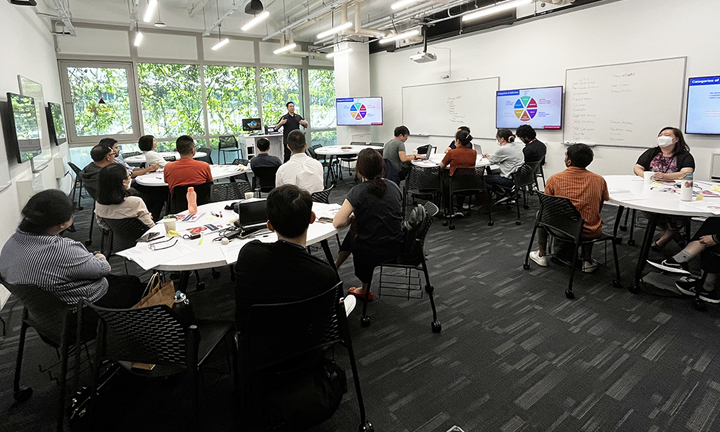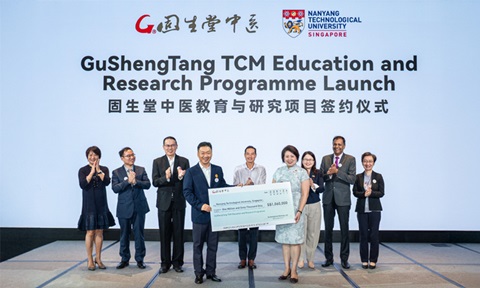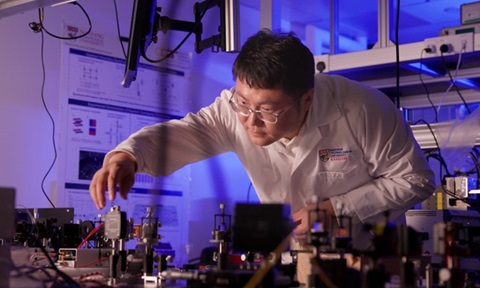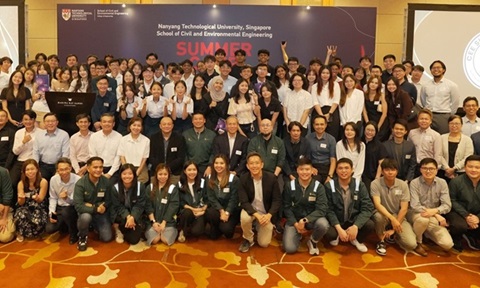Building a resilient psychological safety net
Psychological first aid training is helping NTU staff and students and enhancing the university’s wellbeing culture. Trainees at NTU share their learning experiences.
By Sadia Roohi
NTU has launched a psychological first aid programme to help its staff and students navigate how to handle stress and uplift others who need emotional support. The programme, organised by the University Wellbeing Office (UWO), has trained 1,200 staff and students in its first 18 months.

Eugene Chan, a final year student in the School of Materials Science and Engineering, is a member of NTU’s Peer Helping Programme who undertook psychological first aid training in 2022.
Eugene provided psychological first aid to a fellow student experiencing an anxiety attack. His intervention was instrumental in helping the student regain composure and find solace in a difficult moment.
In another instance, he emotionally supported a student who had lost a beloved pet.
“The issue was not that her cat was dead, the problem was her insensitive friends could not empathise with her. Through my talks with her, she mentioned that she felt a lot better after knowing that someone could relate to her emotional baggage and was thankful for the empathy I have shown her,” he said.
UWO serves as NTU’s central wellbeing care and support provider and coordinator. It regularly organises psychological first aid workshops for students, faculty and staff.
Psychological first aid training provides learners with basic knowledge and skills in helping individuals affected by crises in life. Training in psychological first aid enables an individual to give an emotional lift for someone in distress.
Explained Eugene, “It is important to spread awareness and offer support to those in need. Psychological first aid should be taught to everyone because it is vital to manage the unexpected nature of life itself.”
He emphasises the importance of addressing the root causes of distress, not just the symptoms. "I've always lived by the philosophy of treating the human before the symptoms," said Eugene, whose mother is a psychologist. "The training not only invigorated my beliefs but also helped me gain a new perspective on helping others."
Alumni’s role in supporting students’ wellbeing
Another trainee is Dr Swati Sharma, a PhD graduate from NTU’s Interdisciplinary Graduate School’s Class of 2022, who is aware of the challenges students face today. She is also a lecturer in the School of Social Sciences.
She noted that the rapidly changing world has led to higher academic standards, a more competitive job market, and increased pressure on students to excel academically.

Alumni have a crucial role to play in supporting students' wellbeing. Alleviating the pressure on students requires a supportive ecosystem. Dr Swati encourages constant dialogue between alumni and students, offering students insights into their future professional journeys.
“If there are more opportunities for interaction between alumni and students, students can get a sense of how their professional journeys will be, and that may help alleviate some pressure from them,” she said.
As a lecturer, Dr Swati has come across cases where students report cases of depression spirals and are not able to focus or finish assignments.
She said, “Most of my classes start with a quick pep talk where I encourage my students to take good care of their physical health and emotional wellbeing. By doing so, pursuing academic excellence and professional success would become easier.”
Dr Swati shared that sometimes, what students need is a listening ear. She has provided this several times and it has worked wonders.
She also believes that creating more safe spaces will help enhance NTU's wellbeing culture.
NTU alumni are invited to support NTU’s wellbeing initiatives and programmes by giving financial support to the NTU Wellbeing Fund, which helps UWO to fund more programmes for the OneNTU community. Click here to learn more about how you can be involved.






